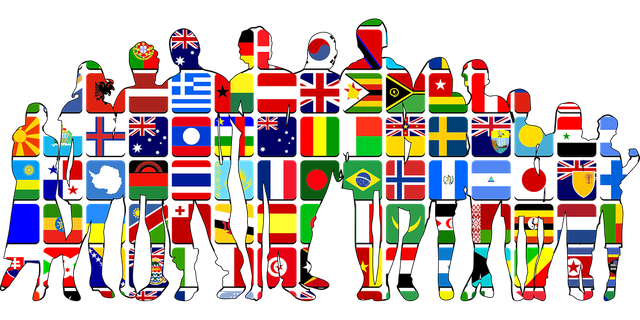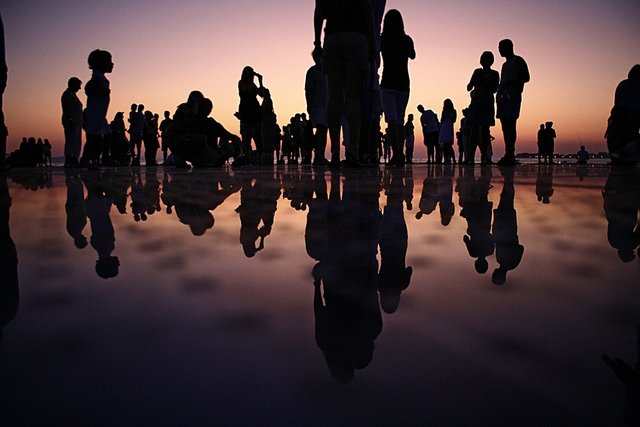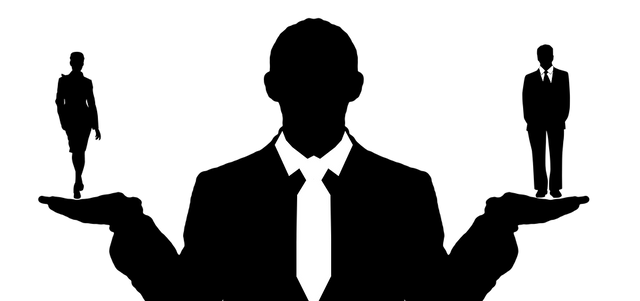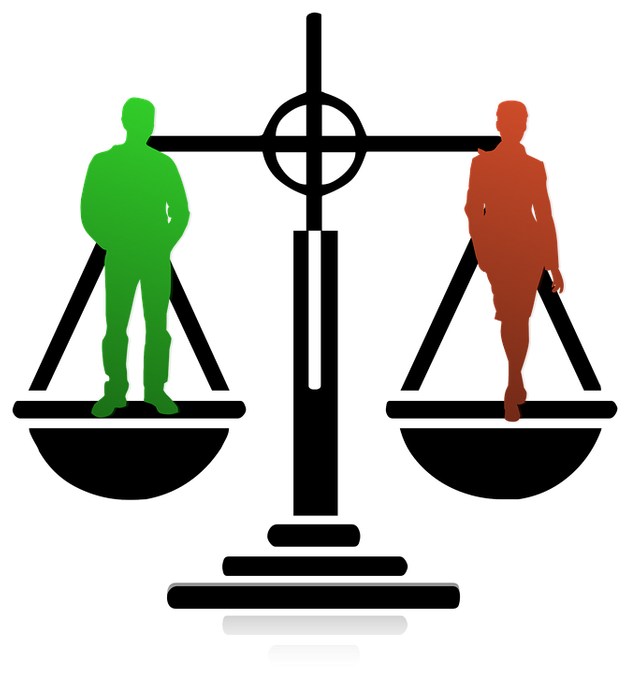
The Anthropology of Sex and Gender - Part 2: The Anthropological approach to Sex and Gender and Gender Stereotyping
The Anthropological approach to Sex and Gender
Why do anthropologists refrain from conforming to new usages of the terms "sex" and "gender", as used in popular discourses and other social sciences?
Why do anthropologists use "sex" as a term for (biological) differences, and "gender" to indicate a category that includes men (and boys) as well as women (and girls)?
Retention of the term "sex" and an interpretation of the term "gender" to include men can be ascribed to holism, a basic tenet of anthropology.
As I have explained previously, holism involves looking at the problem as a whole and not dividing it up for the sake of convenience or to promote an ideological cause. Sociocultural anthropologists advocating a holistic approach believe that every social or cultural variable relevant to their particular unit of analysis should be considered. In general, holism in anthropology can also mean that every variable relevant to the study of human beings should be considered this includes the biological aspect of humanity. Some anthropologists still cling to the holistic ideal in both sociocultural and the general sense.
Consequently, many anthropologists think it is important to consider biology as well as culture in relation to gender. Although human beings are the only animals to have a primarily sociocultural adaptation to the world, they remain biological beings (even though they seek to manipulate their biological nature through genetic engineering, in vitro fertilisation, etc). So human behaviour tends to be determined by genetic factors and by the unique capacity of humans to conform to a multiplicity of sociocultural heritages of their own making. Almost from the beginning, anthropologists have been trying to work out which behaviours are primarily biologically determined, which are socioculturally determined, and to what extent both factors may be involved in human development (the so-called nature vs nurture debate).
Most anthropologists believe that you cannot hope to resolve this long-standing dilemma if you confuse biological categories with sociocultural ones. While anthropologists may use the term "sex" in the everyday sense of describing sexual relations between people, they also regard it as the most appropriate term for the biological differences between males and females, linking it with terms such as "male" and "female" and using these terms to signal that they are making a broad biological distinction, as they would for any animal that reproduces sexually and therefore requires sexual differentiation. They tend to acknowledge the evolutionary connection between sexuality (mating; reproduction) and the physical and behavioural differences between the sexes in humans, but are extremely wary of the reductionism that resulted when certain biologists and zoologists have attempted to "biologise" all human behaviour, especially in books for popular consumption.
Gender Stereotyping
In most societies, women of all ages and at all stages of life are regarded as the dependent sex. This tendency is known as gender stereotyping. Contrasting characteristics of masculinity and femininity are applied to all males and all females respectively, regardless of individual variations, and it is up to the individual to conform to these stereotypes or risk ridicule and rejection.
Male supremacy and subjugation of women became a characteristic of human societies, despite the fact that the two sexes are more equal in size and strength than most other species or perhaps it was because of that very fact!
Some time ago, Time magazine (1999) announced:
The latest research into the secrets of biology and evolution reveals that women are tougher, stronger and lustier than everyone thought.
These findings may surprise Westerners, who are still influenced by Victorian patriarchy's celebration of frail women (which may explain why our fashion models are so skinny). However, members of societies that have relied on the physical labour of both sexes (such as African tribal societies) have always known that women can do all the things that men can do and bear and suckle babies as well.
This may be why women have so frequently been perceived as a threat to men. Among the Xhosa, women are regarded as a cause of sickness in cattle when their fertility is most evident (during menstruation and after childbirth); in other societies, they are regarded as a curse, even when they are no longer fertile (the perception of old women as witches). Universally, women have been characterised as being closer to nature, while men are regarded as being closer to culture, the tamers of wild women. Subjugation has, however, never been all-encompassing. Even the former rulers of Afghanistan, the Taliban, the most notorious modern example of women oppressors, had to obey the provisions in their scripture (the Koran) and canon law, which acknowledge the rights and autonomy of women in certain contexts, mainly in the home and family life.
Research on gender stereotyping has shown that even when we believe that men and women are equal, we often make implicit assumptions about a person's ability to complete certain tasks (Fine 2010:6). People make assumptions about whether men or women are suitable for careers in science or for leadership roles, not on the basis of the person's ability to do a certain job, but rather, on images, preconceived ideas and media accounts of who usually fills these roles. People are primed to believe that they have certain abilities, based on their gender.
A group of French school students were asked to rate whether certain stereotypes along gender lines were true, namely, whether boys are better at maths, think more logically and are better leaders, while girls are more caring and compassionate and better at the arts. These students were then asked to report on their own maths and art marks. Unsurprisingly, boys exaggerated their maths marks, while girls underreported their maths achievements (Fine 2010:8). This proves that the stereotypes we hold influence how we perceive our own and other people's abilities.
A study by Yale scientists showed how the gender stereotype persists in terms of women's ability to perform well in scientific disciplines. Curricula vitae showing exactly the same abilities and achievements were randomly assigned a male or female name. Based on this information, the science faculty was asked to recommend a person for a job. The majority recommended hiring the male candidates, even though the females' CVs were exactly the same. This study shows that gender stereotyping in science (and other realms) persists.
In the nineteenth century, some female scientists pretended to be men in order to publish and work in scientific fields. Cordelia Fine (2010:54) writes:
Ben Barres is a professor of neurobiology at Standford University, and a female-to-male transsexual...he recalls that shortly after I changed sex, a faculty member was heard to say "Ben Barres gave a great seminar today, his work is much better than his sister's."
This implies that it may still be better for women in science to hide their identities in order to be taken seriously as scientists.
The discussion on gender stereotypes also shows how important it is to recognise that the roles that men and women occupy in societies are not natural; they are socially constituted, even though people themselves may not consciously be aware of these stereotypes. When doing research, anthropologists must consider how to account for socially constructed ideas of the appropriate roles of men and women.
Apart from the effect of gender stereotyping on how women see themselves and what careers they choose, gender stereotyping has a direct influence on what women earn, in South Africa, for example, women earn 33.5% less than men for doing the same work, while worldwide it is 22.5% less than men.
End of Part 2
Thank you for reading.
Images are linked to their sources in their description and references are stated below.
Authors and Text Titles
Cordelia Fine 2010: Delusions of gender: how our minds, society, and neurosexism create differences
Time magazine 1999
A Dreger 2010: Sex typing for sport
Blackless, Charuvastra, Derryck, Fausto-Sterling, Lauzanne & Lee 2000: American journal of human biology
Intersex Society of North America (ISNA)2008:
CW Mullins 2006: Holding your square: masculinities, street life and violence
JH Arnold & S Brady 2011: Introduction, in What is masculinity? Historical dynamics from antiquity to the contemporary world
Simone de Beauvoir








To read more about us and what we do, click here.
https://steemit.com/geopolis/@geopolis/geopolis-the-community-for-global-sciences-update-4
If you do not want us to upvote and comment on your posts concerning earth and earth sciences, please reply stop to this comment and we will no longer bother you with our love ❤️
Downvoting a post can decrease pending rewards and make it less visible. Common reasons:
Submit
Thank you for another lesson! I'm not going to lie I had to reread the first few paragraphs a few times! 😁
This is an interesting point. That the closeness in size and strength of women was perceived as such a threat that males felt the need to use their differences to their fullest advantage.
It is unfortunate that gender stereotypes still affect the workplace. In an article by Kathy Caprino, Gender Stereotypes Are Real, she covered the work Joseph Grenny and David Maxfield did in a study on the perceived competency and worth on women in the workplace when they are considered being "forceful" or "assertive". The two found that the perceived competency and financial "value" dropped at a higher percentage rate for women when making certain framing statements than when men made the same statements. Quoting Grenny and Maxfield: "We are able to be fair when thinking of fairness but then slip into gender stereotypes the moment we let our guards down."
Downvoting a post can decrease pending rewards and make it less visible. Common reasons:
Submit
Thank you for giving this balanced view of the genders.
The debate will hopefully change it's course.
I'm a little.... how can I put it... tired of the heated debate that has been going on for so long in the public media. The "nature vs nurture" debate reminds me of the worldview, which considers life to be fateful, according to which a human being cannot do anything to escape that fate, everything is predetermined and influenced by external, higher powers (which is pessimistic or fatalistic or phlegmatic in its extreme).
And the other view is that creation is an act of management, of architecture, within which everything can be regulated and influenced and changed, in which nothing is impossible. Man as the maker, creator of his existence (which drives to maximum performance, appears aggressive and overestimates himself).
Both are extreme views to understand life, that from my perspective is so much more complex and inscrutable. Thank you for pointing that out.
Of course, the roles of people are much more than their genders and their diversity is a blessing than an obstacle.
How has it been in your life, have you personally been able to free yourself from dealing with a man or woman when it came to solving problems (no matter of which art), to get advice that you sought?
For my part, I think that people - often unconsciously - turn to the person they consider to be the most competent when, for example, they are in a crisis situation.
The roles in a person's life can be assigned in different situations. So one is good for this and the other good for another thing. There's no such thing as "one is good for everything" for me and it's just an exaggeration again. We often don't know what positive resources men and women have when it comes down to it, because we have begun to believe in the stereotypical roles.
My pain-point is where it comes to fertilization, pregnancy and giving birth.
I am highly suspicious of the increasing c-section rates in clinics. I see no way to stop that and it gives me worries.
I am thankful that you put your work in this topic and spread information.
Edit: Though I do find that male and female have certain gender related sources and roles which I really do not want to be equalized like they do not exist. Equalization is also misguided in this regard when people pretend that there are no differences.
Downvoting a post can decrease pending rewards and make it less visible. Common reasons:
Submit
Thank you for the excellent comment!!!
There was a point in my life when I when in a transition moving from one sector of employment to another and during this transition, I was unemployed and still studying the new degree, which left me at home during the day while my girlfriend was at work. Coming from a background in which the man brings home the bacon, this was a huge adjustment for me because now the roles were reserved as per what society or rather my background thought me. During those years is when I learnt personally that there are no differences in the abilities of the different genders.
Downvoting a post can decrease pending rewards and make it less visible. Common reasons:
Submit
Thank you, too for your appreciation.
I understand. That is really something. Pressure can be high when the roles are reserved and the comments one get's often should be spared.
As I see it it was good to have had this particular experience and you seem tolerant of it. To provide financially for one another as well as emotionally still do not have the same value. Also, in the course of life, it's problematic when a couple splits and the chain of give & take is broken. The roles can change within a lifetime several times and it is good to measure them within this wide frame.
I learnt the same you learned:)
Downvoting a post can decrease pending rewards and make it less visible. Common reasons:
Submit
Was a very nice movie good post
Downvoting a post can decrease pending rewards and make it less visible. Common reasons:
Submit
Seriously, even as a spam comment that is just pathetic.
Downvoting a post can decrease pending rewards and make it less visible. Common reasons:
Submit
In the beginning of human has shown that men always have the task to hunt and and become chiefs, I do not say superiority. And nowday's scientific also show that the differences between men and women are not just in sex but also in the brain and way of thinking. I have no idea if what we see now is the result of the construction of sociaty.
Downvoting a post can decrease pending rewards and make it less visible. Common reasons:
Submit
This post has received a 0.13 % upvote from @drotto thanks to: @banjo.
Downvoting a post can decrease pending rewards and make it less visible. Common reasons:
Submit
I've not been able to distinguish between "sex" and "gender". I've used them interchangeably. Maybe I've been doing it the wrong way though :(
Nice piece buddy
Downvoting a post can decrease pending rewards and make it less visible. Common reasons:
Submit
Downvoting a post can decrease pending rewards and make it less visible. Common reasons:
Submit
It took 4 days of research, thereafter 6 hours of summarizing and writing another 45 min to add the appropriate pics, and it took you 2 min to read my post:)
Downvoting a post can decrease pending rewards and make it less visible. Common reasons:
Submit
😅
Downvoting a post can decrease pending rewards and make it less visible. Common reasons:
Submit
Exactly my issue with spammers...
Downvoting a post can decrease pending rewards and make it less visible. Common reasons:
Submit
Downvoting a post can decrease pending rewards and make it less visible. Common reasons:
Submit
You get flagged.
Downvoting a post can decrease pending rewards and make it less visible. Common reasons:
Submit